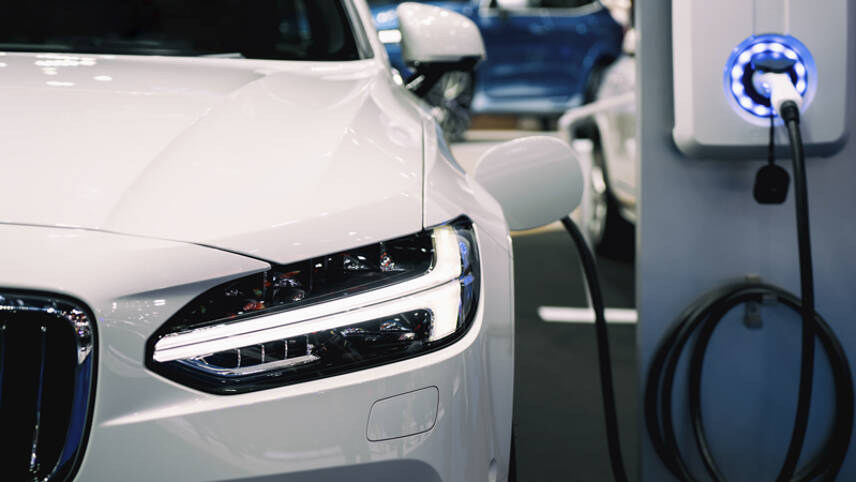Register for free and continue reading
Join our growing army of changemakers and get unlimited access to our premium content

One-quarter of the UK's electric car stock was registered this year, the figures confirm
That is according to the Society of Motor Manufacturers and Traders (SMMT), which has today (5 October) released its latest vehicle registration data for the car market and the light commercial vehicle (LCV) market.
Regarding cars, more than 225,200 were registered in September – 4.6% more than in September 2021. The SMMT notes that September usually brings a month-on-month boost in registrations as buyers in this month benefit from the newest licence plates.
While registrations are still around one-third below pre-pandemic levels, the SMMT notes that electric car registrations have not been impacted by the pandemic or subsequent economic downturn as much as petrol and diesel registrations have.
Pure-electric models accounted for 16.9% of all new car registrations in September. Hybrid-electric models accounted for a further 18.4%. Diesel cars took just 4.6% of the market share, down from 5% last September.
The SMMT has tracked the registration of almost a quarter of a million electric cars in 2022 so far, bringing the UK’s total stock past the one million mark for the first time.
In the LCV market, the SMMT has recorded a 10.8% year-on-year increase in registrations and the first month-on-month increase in 2022. 4.4% of the LCVs registered in September were pure electric, up from 2.9% in September 2021.
The SMMT’s chief executive Mike Hawes said: “September has seen Britain’s millionth electric car reach the road – an important milestone in the shift to zero-emission mobility. Battery electric vehicles make up but a small fraction of cars on the road, so we need to ensure every lever is pulled to encourage motorists to make the shift if our green goals are to be met.”
The UK is banning the sale of new petrol and diesel cars and vans in 2030 as part of plans to reach net-zero by 2050 and adhere to interim carbon budgets.
Industry reaction
British Gas’s parent company Centrica is working to electrify its entire fleet of 12,000 vehicles by the end of 2025.
Commenting on the SMMT’s latest figures, British Gas’s EV director Kim Royds said: “As the rate of EV adoption climbs, so does the pressure on the UK’s network of charging points, particularly the demand for super-fast charging which offers more convenience for drivers.
“The continued uptake of EVs is dependent on government and policymakers ensuring the rollout of the charging network is done properly. This means focusing on accessibility, convenience for users, and ensuring the latest technology – including super-fast chargers – is put in place to build a network fit for future purpose.”
Under Boris Johnson, the UK Government set out an EV Infrastructure Strategy earlier this year. The Strategy outlines how £1.6bn of funding will be spent to rapidly increase public charging points this decade.
Also reacting to today’s updates from the SMMT is EY UK & Ireland’s automotive lead David Borland. He said: “Despite the withdrawal of the Plug-in-Grant earlier this year,v sales of Battery Electric Vehicles (BEVs) continued to increase. Registrations of new BEVs increased by 16.5% in September with a year-to-date increase of more than 40%. Plug-in hybrids continued their demise with an 11.5% and 15% reduction respectively. This now means that there are more than one million plug-in vehicles on UK roads, which is the first of many tipping points to come.
“Additionally, interest in UK-based EV manufacturing plants from global OEMs bodes well for the country’s EV adoption plans in the future. Time will tell what impact the increased pricing for electricity has on the rise of plug-in vehicles, with consumers balancing the upfront and ongoing costs. Another challenge that is being mounted is the difference in VAT between public and private charging. Given the cost of everything crisis, every penny will count.”


Please login or Register to leave a comment.